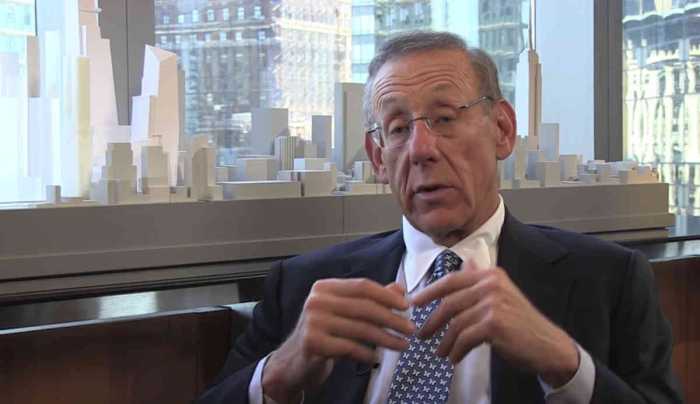Tennessee State Senator Mark Green, a stridently anti-gay Republican nominated to be Army secretary, has withdrawn. | MARKGREEN4TN.COM
Mark Green, a Tennessee state senator and 20-year military veteran whose nomination to be the new secretary of the Army had sparked intense criticism by LGBTQ advocates and others, has withdrawn his name from consideration.
In a May 5 written statement, Green, citing “false and misleading attacks against me,” announced his decision.
Since the time of his nomination, Green faced criticism for his strident opposition to marriage equality and his having characterized being transgender as a “disease.” Speaking to a Chattanooga Tea Party gathering last fall, he falsely claimed that being trans is listed as an illness in the psychiatric profession’s official diagnostic manual. He has also repeatedly offered encouragement to public officials in Tennessee who would choose to ignore the 2015 Supreme Court ruling recognizing the right of same sex-couples to marry. Earlier this year, he signed on as a “prime co-sponsor” of legislation that would make it state policy “to defend natural marriage between one man and one woman regardless of any court decision to the contrary.”
Last year, he pushed for a law that would bar the state and localities from penalizing any business — such as in the awarding of contracts — for any of their personnel or benefits policies, such as denying same-sex spouses insurance coverage customarily available to spouses.
Green has also been faulted for inflammatory comments about Muslims and Latinos, agreeing at the Chattanooga gathering that Americans should “take a stand on the indoctrination of Islam in our public schools.”
After more than a month of criticism from progressive advocates and doubts raised by leading Democratic senators about his fitness, Green’s political fortunes turned dire this week.
Arizona Republican Senator John McCain, who chairs the Armed Services Committee that would have held hearings on his nomination, told USA Today on May 2 that the Tennessee state senator’s comments about LGBTQ and Muslim Americans are “very concerning.”
“There’s a lot of controversy concerning his nomination,” McCain told the newspaper. “We are getting some questions from both Republicans and Democrats on the Armed Services Committee. I think there are some issues that clearly need to be cleared up.”
The following day, New York Senator Chuck Schumer, the Senate minority leader, in comments first provided to Gay City News, announced his intention to vote no on the nomination.
“Mr. Green’s intolerant, extreme, and deeply disturbing views, and disparaging comments toward the LGBTQ community, Muslims, Latinos, and other groups of Americans – all of whom play important roles in the Army and in our country – are dangerous to morale, cohesion, and readiness of our Armed Services and the fabric of America,” Schumer said in the statement he provided the newspaper.
New York Senator Chuck Schumer addressing the New York dinner of the Human Rights Campaign earlier this year. | JEFFREY HOLMES/ HRC
Had Schumer held all 48 Democrats in opposition, the defection of just three Republicans would have doomed Green, and McCain’s skepticism signaled doubts even among GOP senators most likely to hold his service in the Army and his graduation from West Point in high respect.
Green, in his letter withdrawing his name, insisted his views had been misrepresented.
“Tragically, my life of public service and Christian beliefs have been mischaracterized and attacked by a few on the other side of the aisle for political gain,” he wrote. “While these false attacks have no bearing on the needs of the Army or my qualifications to serve, I believe it is critical to give the president the ability to move forward with his vision to restore our military to its rightful place in the world.”
Green’s LGBTQ critics, however, had zeroed in precisely on his fitness to lead a united Army in uncertain times. In a press call last month, Stephen Peters, the press secretary of the Human Rights Campaign (HRC) and a former service member discharged under the Don’t Ask, Don’t Tell military policy whose his husband is currently an active duty service member, warned that Green as Army secretary “would send an incredibly dangerous message down the line of command. He cannot be trusted to lead the Army forward.”
Ashley Broadway-Mack, president of the American Military Partner Association (AMPA), a support group for partners, families, and allies of LGBTQ service members and veterans, said, “At a time of unrest around the world, all service members should have the confidence they have the full support” of the nation’s leaders.
Schumer today hailed Green’s decision as “good news for all Americans, especially those who were personally vilified by his disparaging comments directed toward the LGBTQ community, Muslim community, Latino community, and more. He was the wrong choice to serve as secretary, and should not have been nominated in the first place.”
Trump, the Senate minority leader said, should instead “nominate someone who can faithfully lead and represent all members of the US Army.”
Green’s replacement nominee, if confirmed, would succeed Eric Fanning, the first out gay Army secretary, who assumed that post in the last year of the Obama administration.
Following the Green withdrawal, Chad Griffin, HRC’s president, pledged to “continue to fight back against any appointment or policy made by this president that puts our community at risk.”
Trump, however, has nominated Heather Wilson, a former Republican member of Congress who also has a long anti-LGBTQ record, as Air Force secretary, but progressive groups have been relatively silent about her. In last month’s HRC call about Green, David Stacy, the group’s government affairs director, said, “We’re not a big fan of Heather Wilson, either. But Green is above and beyond.”




































